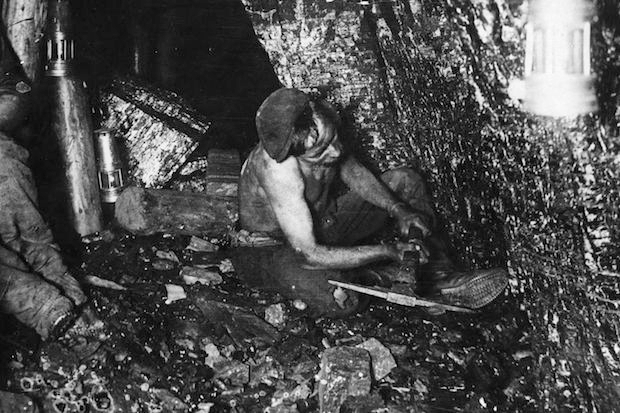From ‘Coal and its Problems‘, The Spectator, 24 July 1915:
The high price of domestic coal, though undoubtedly an immediate injury to the country, will prove an ultimate benefit. Politicians never seem capable of understanding that high prices if left alone kill themselves, first by reducing consumption, and secondly by stimulating production. The only condition under which this proposition fails is whore the supply is con- trolled by a ring. In that case it is possible for the controllers of the ring artificially to maintain extravagant prices for the benefit of themselves and their shareholders. But the coal supply of the United Kingdom is in far too many bands and worked under such a variety of conditions that nothing in the nature of a ring is possible, and there- fore ordinary economic forces would operate. More than this, it is extremely important at the present time that we should send as much coal as possible abroad and consume as little as possible at home. Of necessity we have to import large quantities of goods both for domestic and for war consumption. Our previous moans of paying for these goods by the export of our own manufactures has been to a large extent cancelled owing to the fact that so much of our industry is now devoted to war purposes. Con- sequently, unless we can pay for our imports of food and munitions by exports of coal, we shall be driven to the un- pleasant alternative of parting with our gold or of selling our foreign securities at knock-down prices. Either process will be gravely injurious to the interests of the country.
The idea of keeping down coal prices for the benefit of the poor consumer is just the kind of idea to appeal to a democratic assembly like the House of Commons, which seldom looks beyond the facts or the sentiments of the moment. Instead of attempting to regulate prices, the Government ought to have contented themselves with taxing profits, and by that phrase we mean not only the extra profits of the coalowner, but also the extra wages of the coalminer. The assumption that the coalminer is morally justified in obtaining an extra wage for himself out of the nation’s needs, and that the coalowner is not justified in obtaining an extra profit, cannot possibly be defended. Mr. Runciman announced that the Chancellor of the Exchequer has in view a tax on war profits, which would certainly affect those coalowners who have been making large profits in the last few months; but if there is to be any equity in our fiscal system, a similar tax should be applied to the extra gains made by the miners. Subject to this extra taxation, and subject also to an export duty on coal, the Government would do well to leave coal problems alone, except of course so far as it is necessary to preserve an ample supply for the Admiralty and to prevent coal falling into the hands of our enemies.






Comments